HOME >> CHINA
Beijing strengthens epidemic control measures among migrant workers to shield the capital
By Hu Yuwei Source:Global Times Published: 2020/3/10 18:13:40
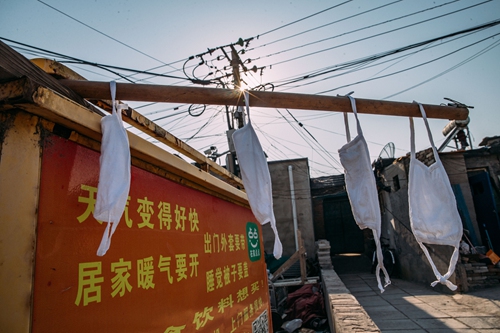
Masks hung in the air in the Mayu village. Photo: Li Hao/GT
There were 7.46 million migrants working in Beijing from other regions of China as of 2019, statistics showed. Many of them have started to return to the capital after staying in their hometowns for the Chinese Spring Festival holidays, which was extended due to the outbreak of the novel coronavirus. This gradual migration poses high risks and pressures for preventative work in migrant populous areas in Beijing. Communities in the capital have made significant efforts in preventing the virus from entering the capital while ensuring the safety and comfort of migrant workers.
As of Monday, Beijing accounted for 429 of the 17,721 confirmed cases of coronavirus across the country.
Strengthened measures include non-contact temperature monitoring, entry and exit monitoring, round-the-clock inspections, temporary disinfection rooms and comprehensive disinfectant spraying every two hours at the Mayu village, the largest "urban village" in Shijingshan district, Beijing.
About 60 percent of the nearly 10,000 residents in Mayu are migrant workers, including more than 300 tenants from Hubei Province who have not yet returned to Beijing. They mostly work in the capital's booming service sectors, such as online take-out and express delivery.
In Mayu, more than 1,000 people have returned. Around 40 returnees per day on average come back from their hometowns in recent days.
More than 400 are still in isolation at home, reporting their body temperature in the community administrative WeChat groups regularly upon request every day. They are not allowed to leave the community except for special needs such as medical treatment or pregnancy inspection. Basic necessities can be ordered online and delivered by community officials. Besides, to avoid the excessive influx of migrant workers, the community has mobilized landlords to persuade tenants to delay their journeys back to Beijing. Some landlords promised partially waive rents if tenants delay their returning dates.
Tents are used to set up temporary disinfection rooms at the community's entrance where the epidemic prevention workers come in every two hours for a full disinfection spray.
To better cope with the rush of returning tenants, some senior Party members and retirees have joined the volunteer scouts to establish shifts on a 24-hour cycle.
"Communities are now more flooded with migrants and young workers than they were during the SARS outbreak in 2003, which requires more advanced protection measures," a staff worker in Mayu community told the Global Times.
"We need to make sure that all preventative moves are in place, but it cannot be achieved at the expense of their [migrant workers'] basic rights. We keep them notified on the basis of protecting their privacy," said the worker.
Most of the convenience and grocery stores in the community have not yet opened, with the exception of one supermarket that provides residents with basic needs.
Liu Jincai, 50, a migrant worker from Cangzhou, North China's Hebei Province, suffered a big loss from the closure of his barbecue restaurant because of the outbreak.
Liu's family of six now crowds in an apartment of less than 50 square meters and spends more than 200 yuan on daily expenses.
"Health and safety are always the top thing. It's been a tough time for migrant workers like me, but seeing more people coming back and fewer confirmed coronavirus cases reported every day, I believe we can get through it soon," Liu told the Global Times.
Moreover, the Beijing Municipal Government has set up an online data sharing platform to mobilize the orderly safe return of migrant workers to their posts in Beijing.
It helps realize information sharing among enterprises, migrant workers and transportation authorities.
The local government has deployed special trains and buses and served more than 100 people returning to Beijing.
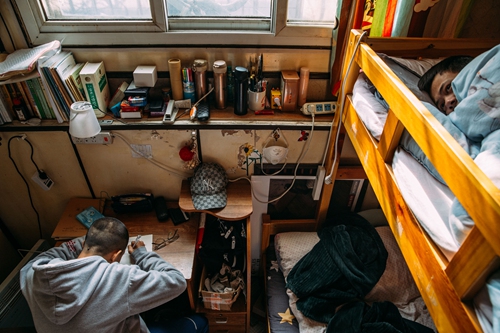
A teenager takes his online tutoring course while his brother sleeps in a rental house. Photo: Li Hao/GT
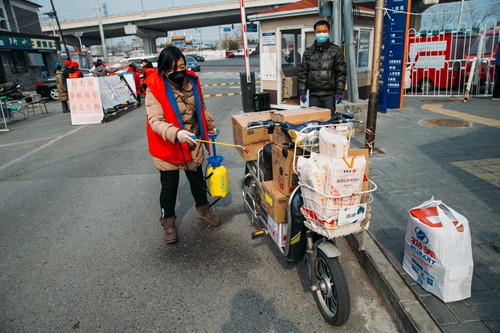
A community worker disinfects a returned migrant worker at the community checkpoint. Photo: Li Hao/GT
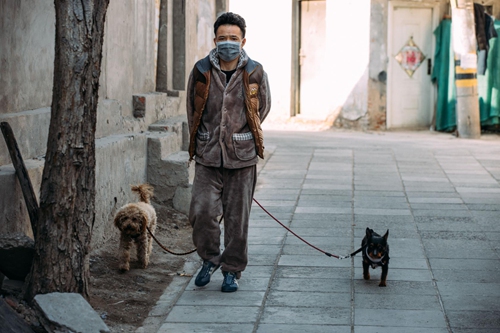
A resident walks his dog in the Mayu community. Photo: Li Hao/GT
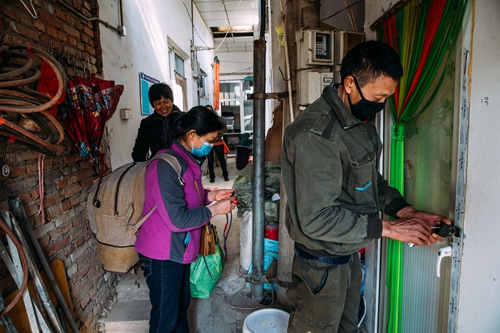
A migrant worker couple return to the Mayu village from their hometown. Photo: Li Hao/GT
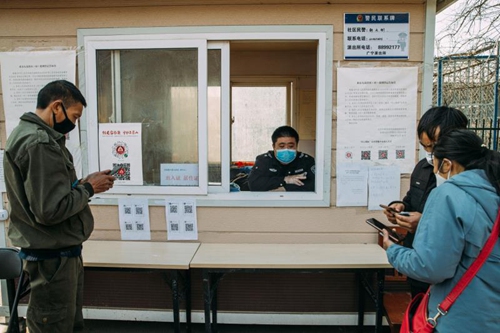
Tenants scan QR codes to register their quarantine records online at the entry checkpoint in Mayu community, Shijingshan district in Beijing. Photo: Li Hao/GT
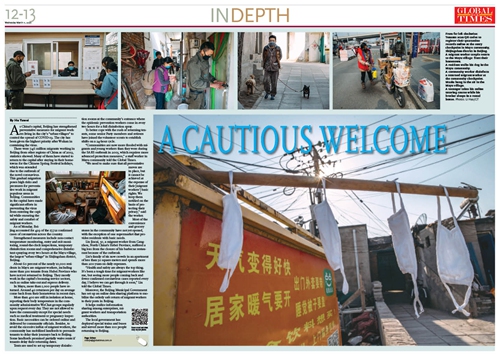
GT
Newspaper headline: A cautious welcome